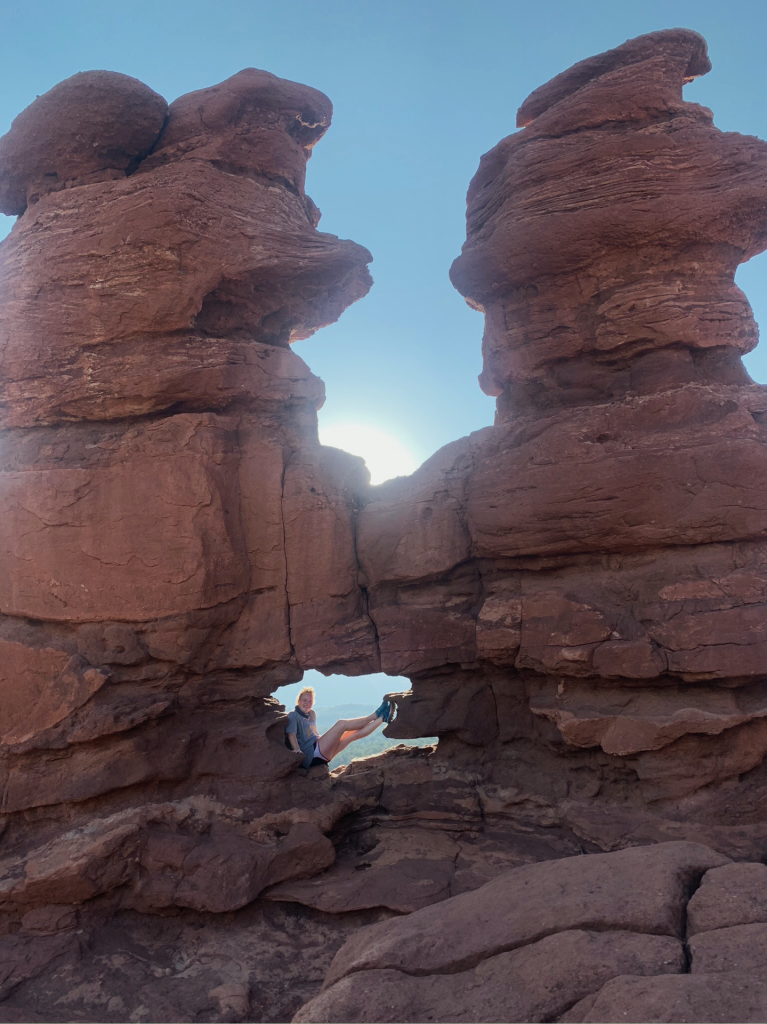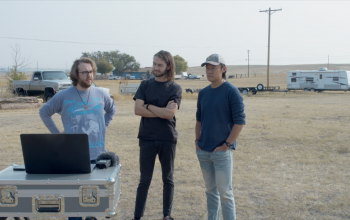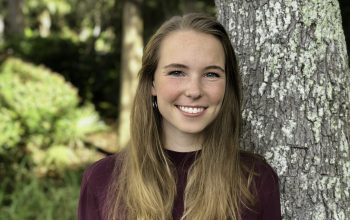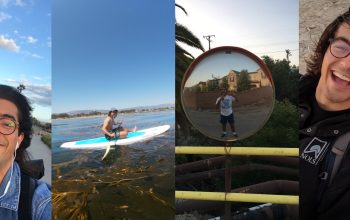Virginia Griffin ’23 on interning in “Olympic City USA” at USADA, preparing for the Tokyo Olympics
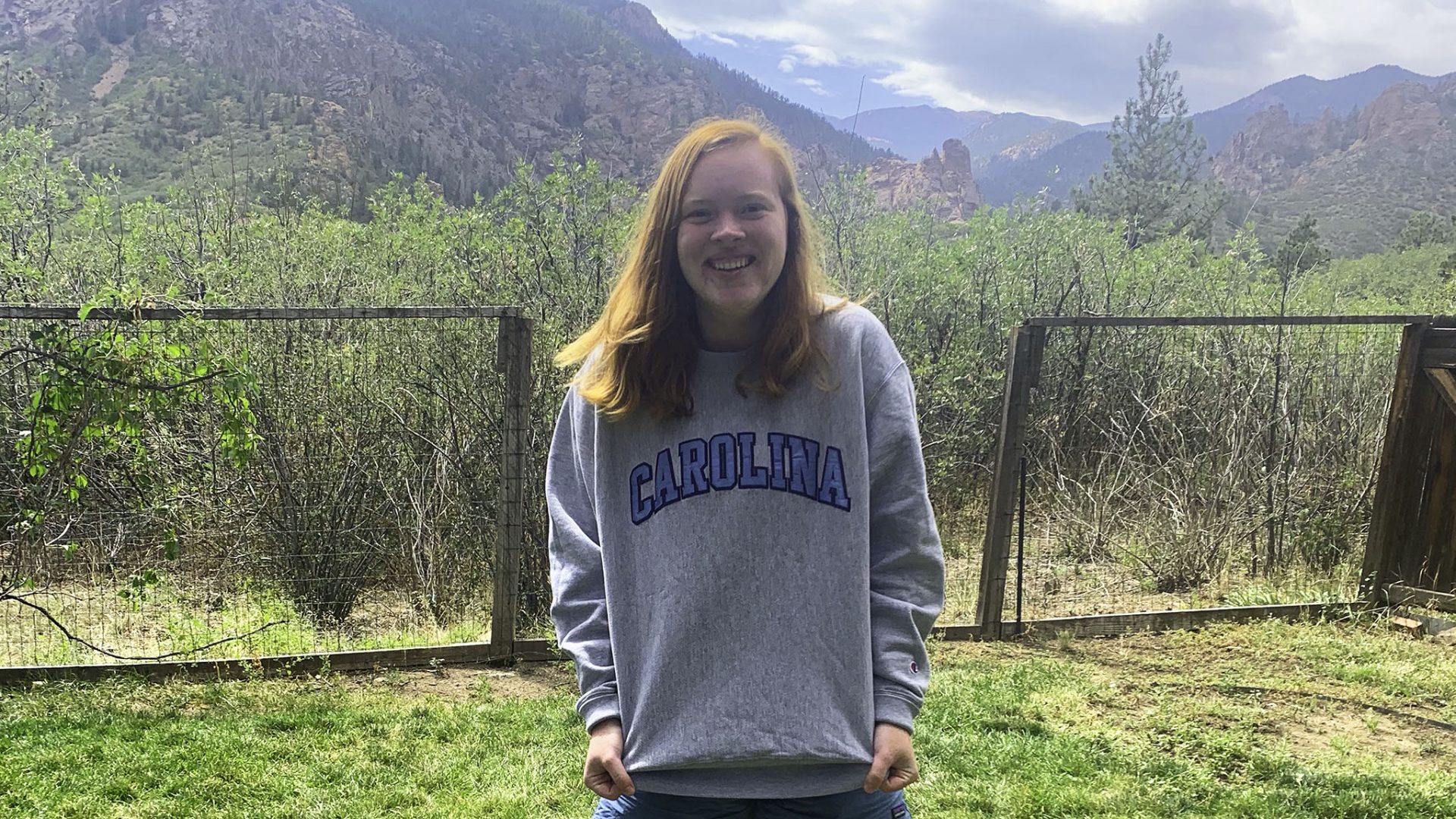
Virginia Griffin ’23 is taking a stop-out this year to intern at the U.S. Anti-Doping Agency (USADA) headquartered in Colorado Springs, Colorado. She joined the national organization’s Elite Education Department in September.
The department develops and provides anti-doping education for elite-level athletes, coaches, and support personnel, according to Virginia. She said she’s passionate about protecting and promoting clean competition in sports. Her role focuses on improving informational presentations and resources, researching educational learning theories, and assisting athletes in taking online courses.
“Our team of five teaches athletes about their rights and responsibilities when it comes to doping, and things like what kinds of medicines they can or cannot take, how to inform us of their whereabouts, and what testing procedures they need to go through,” she said. “Just like anyone else, athletes are innocent until proven guilty, so we try to help them stay safe and avoid getting into trouble by breaking rules and regulations unintentionally.”
The education team, which normally travels throughout the country to competitions and events year-round, pivoted to e-learning mechanisms in the spring as a result of the coronavirus. Virginia said that through the experience she’s been able to witness the organization adapt and innovate as well as increase access to anti-doping education in new ways.
“With all of our presentations online, we’ve really been able to broaden the number of people we can reach at a given time,” the scholar said. “Rather than just being able to teach the athletes competing at one specific competition, we can now teach a whole national or collegiate team.”
The exercise and sport science major said that she became interested in the problem of doping in sports, and USADA’s work specifically, as a high school student.
“I swam, my parents did triathlons, and my sister played volleyball, so I grew up surrounded by athletes,” she said. At John T. Hoggard High School in Wilmington, Virginia was captain of the swim team and competed in long-distance, open-water swim events. “Somehow I found a way to make every research paper I wrote about doping.”
When Carolina sent students home and went to all remote classes in March, and when going remote again this fall seemed likely, Virginia chose to take a stop-out year with the hopes of joining USADA, her dream workplace. With the world in flux, the timing seemed right to explore an opportunity through which she might practically apply her academic knowledge to a real-world setting.
“I wanted to figure out how to take these bad circumstances and turn them into something meaningful and that I’d enjoy doing for a semester or year,” she said.
Even though typically only undergraduate juniors and seniors are eligible for internships at USADA, the second-year scholar decided to email the department with fingers crossed (“I shared with the team, ‘I am super interested in everything you do, I would love to work with you, and here’s my resume,’” she said of the exchange). The department responded with an offer. What began as a semester-long internship has been extended by the nonprofit through at least May with the possibility of working through the summer, too.
Virginia also met USADA CEO Travis Tygart at the University in August while he was helping his daughter move into her on-campus dorm room. Tygart, a UNC-Chapel Hill graduate from the class of 1993, is “the biggest Tar Heel fan you will ever meet,” according to the scholar, who was personally connected to the alumnus through Chuck Lovelace ’77. (Virginia recalled receiving an email from Morehead-Cain’s executive director in which he said, knowing of her desire to work with USADA, “I don’t know if you’re in Chapel Hill or not, but you need to be here to meet him”).
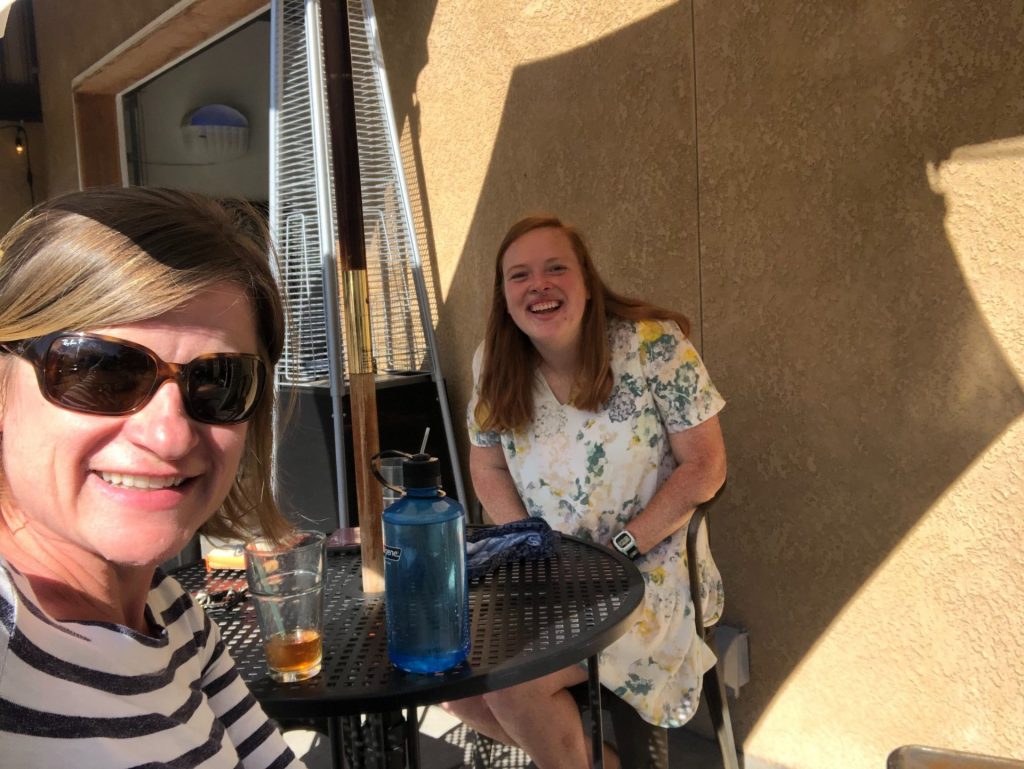
Preparing for Tokyo 2020: ‘Everyone is feeling a little hesitant right now about moving forward’
In addition to growing and enhancing their online programming, the education team is also preparing for the 2020 Summer Olympic Games, tentatively re-scheduled for next July and August in Tokyo, Japan. The IOC’s decision to delay the event is historic; since the first Olympic Games in 1896, the sports competition has never been postponed and has only been cancelled three times, all of which were due to an ongoing world war.
Because USADA focuses on U.S.-based athletes, the international multi-sport event presents a complex web of legal as well as health and safety considerations for athletes. As an example, Virginia said the International Olympic Committee (IOC) is still in discussion about whether volunteers and spectators will be allowed to attend.
“I think everyone is feeling a little hesitant right now about moving forward with huge decisions because things are changing daily and no one knows what next summer will hold,” she said. “But it will be interesting to see how it all plays out and I’m excited to be a part of it.”
